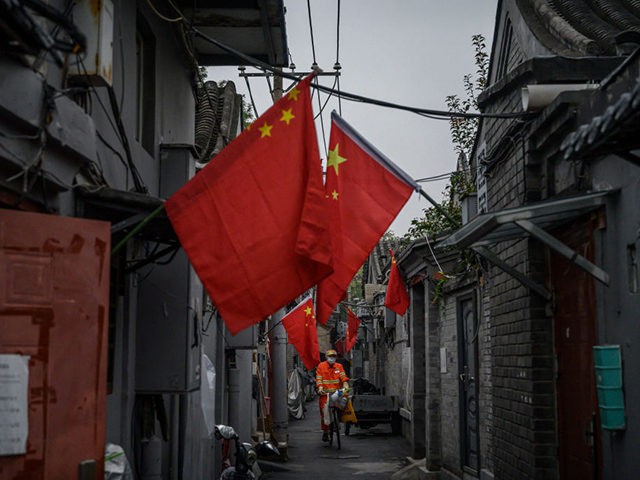China claimed on Monday that it has completely eliminated “extreme poverty” from the entire country, formally removing nine rural counties from the list of 832 impoverished counties that was created in 2014.
According to the Chinese Communist Party (CCP), poverty was to have been eradicated by the end of the year under decree from dictator Xi Jinping, but the plan was executed so flawlessly — even during the Wuhan coronavirus pandemic — that the last vestiges of poverty were erased from the last few hardscrabble mountain villages two months ahead of schedule.
“Poverty elimination by the end of this year is a key facet of a Communist Party goal to build what is termed a moderately prosperous society ahead of the party’s 100th birthday in 2021,” the Wall Street Journal (WSJ) reported on Monday.
As for the coronavirus, the WSJ said Chinese officials admitted it caused a few “setbacks” among lower-income groups, but since Xi insisted he was determined to meet his poverty elimination timeline, it was “a foregone conclusion that authorities would declare success before year-end.”
Chinese state media promptly declared the achievement was “a Chinese miracle in human history,” published some photos of happy workers and students, and advised the rest of the world to learn from China’s example.
The WSJ noted that non-Chinese economists believe a good deal of Xi’s campaign to “eliminate poverty” amounts to simply redefining it out of existence:
A report this year from former World Bank officials said that if a uniform standard of $5.50 a day in income, or around $2,000 a year, were applied, some 373 million or about 27% of the population would be considered in poverty. “Under these rates, poverty in China is still sizable and merits renewed efforts as well as further refinement of the country’s poverty policies, strategies, and programs,” the report said.
The state-media reports Monday said the average net income of previously impoverished residents in the final nine Guizhou counties was now around $1,750 a year.
Reuters noted that the World Bank’s threshold for “extreme poverty” is $1.90 per day, while China invented its own figure of $1.52 per day. The Chinese Foreign Ministry boasted on Monday that Beijing is ready to share its poverty-fighting secrets with other nations. They, too, could “eliminate” a great deal of poverty by arbitrarily deciding to raise the threshold for being considered desperately poor by 40 percent or so.
Other skeptical observers noted that China “solved” the problem of poverty and high unemployment in places like Tibet and Xinjiang province by enslaving the population, training them in “vocational centers” that look suspiciously like concentration camps, and marching them into factories at gunpoint. The Chinese government has published white papers arguing that slavery is really just an aggressive means of “facilitating” employment and giving them “job security.”
There are good reasons to doubt what the Chinese government says about the income level of people trapped in forced labor programs, as their wages are frequently docked or withheld entirely. Social benefits theoretically available to everyone are sometimes denied to migrant rural workers, which makes their lives more difficult than even their painfully low-income levels would suggest. Even those workers who are not outright slaves often find themselves “bound” to companies that punish them harshly for complaining about their compensation or standard of living.
Xi’s next big project involves convincing Chinese city-dwellers to move back to the countryside in a bid to revive fading rural towns, now that they have been “certified” free of all poverty. China’s cities currently account for well over 90 percent of the nation’s Gross Domestic Product, so unless jobs and consumers begin moving back to the countryside, it will become difficult to conceal the difference in standard of living between cities and villages with social spending.

COMMENTS
Please let us know if you're having issues with commenting.